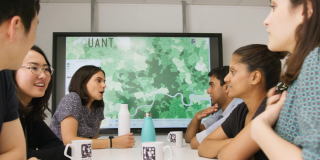The Connected Environments MSc is a new degree at CASA and focuses on the research challenges that relate to the infrastructure required to instrument our built and natural environments.
Apply now
CASA Urban Futures Master's Scholarships
Applications are open for the CASA Urban Futures Master's Scholarships worth £10,000 each to students starting this course in September 2024. The funding can be used towards tuition and/or living costs, and is available for students studying either full-time, part-time (over two years) or flexibly (over five years).
Find out more about the scholarship and apply here.
Overview
The Connected Environments MSc is a new degree at CASA, with a focus on building, coding and deploying devices to sense, communicate and analyse data in relation to our built and natural environments.
The programme meets the need for skills in programming, data capture, visualization, and prototyping with stakeholders to address the challenges of our ever changing environment.
Our unique approach means that our research and teaching are delivered within a living lab environment. With our new location at UCL East, devices are deployed within our building, across the Queen Elizabeth Olympic Park, and further afield. We believe in learning through doing, with practice-led teaching to guide you through the building and deployment of physical prototypes.
The course will enable students to enter the emerging market of the Internet of Things, Smart Cities, Future Living, Data Science and Visualisation.
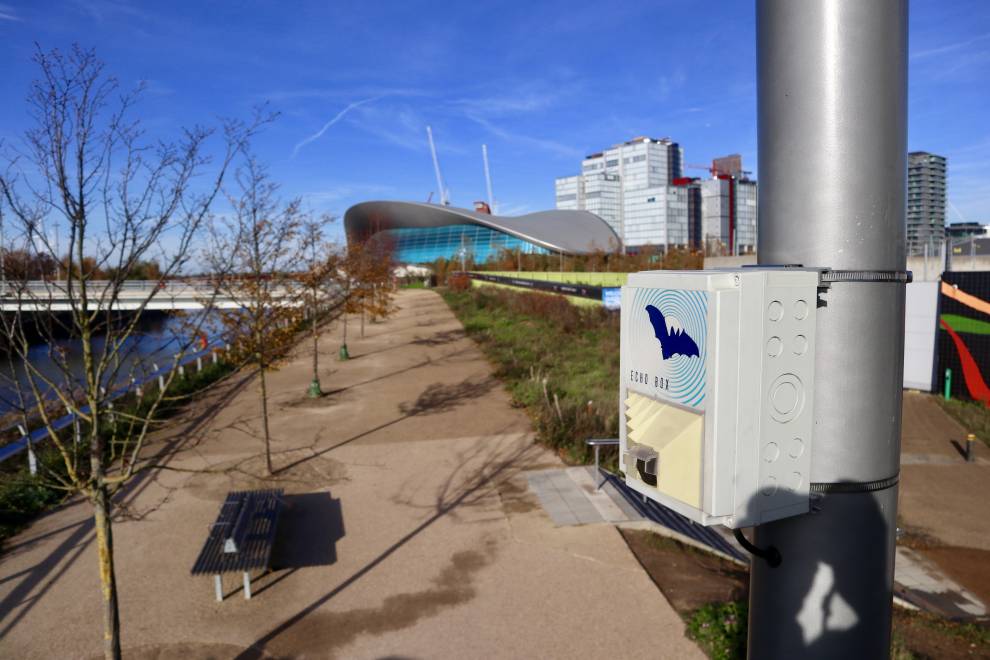
Shazam for Bats; IoT in the QEOP (www.naturesmartcities.com)
Learn more at UCL Connected Environments
The programme is focused on ‘learning by doing’ and involves a mix of lectures, demonstrations, prototyping, project work and design crits. Course modules are practice-based and support a living lab research approach.
Term 1
Students learn various techniques for prototyping connected devices. The Connected Environments module introduces students to the “learn, build, critique” approach used throughout the course. In combination all 4 modules expose students to the building blocks of creating a connected environment that students continue to curate throughout the programme.
Term 2
Students apply their learning in group work and develop deeper technical skills whilst also exploring the more theoretical social, political and economic challenges of connected environments.
Term 3
The term 3 dissertation project brings together learning from the prior modules into a research-driven device to be exhibited in UCL East's Urban Room.
You can read more about the programme outline and course modules here..
Our ongoing collaboration with UCL on the Smart Park project at Queen Elizabeth Olympic Park will be greatly enhanced with the onset of this new course. We look forward to working with our close neighbours to ensure the living lab approach designed into the programme delivers a fantastic research and teaching platform for the East Bank development.
Jim Wood, Director of IT and Information Services, London Legacy Development Corporation
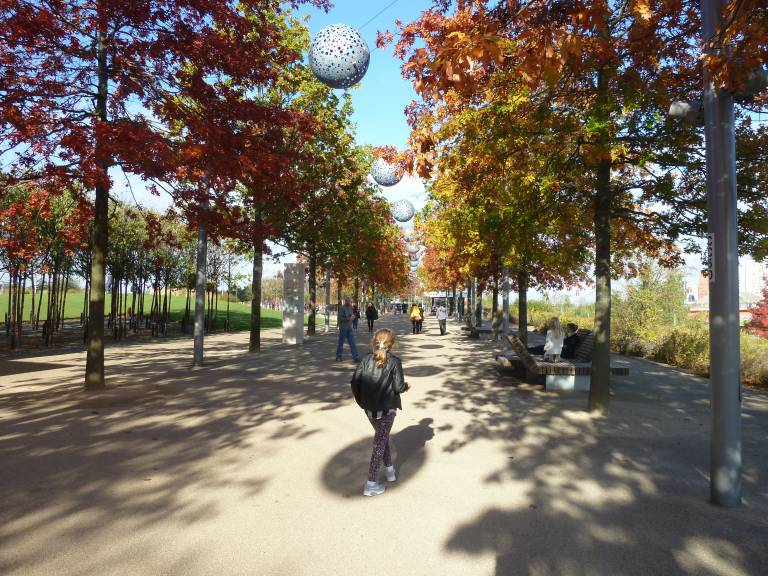
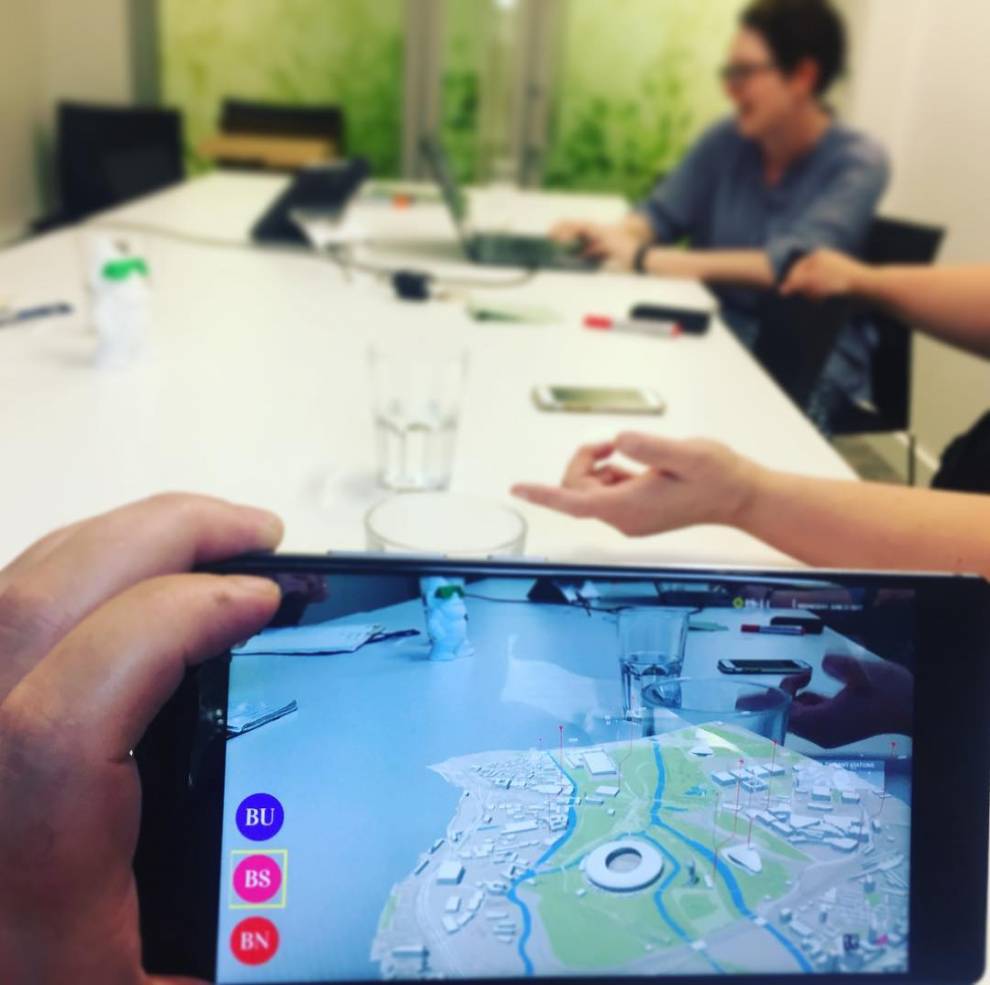
Learning through doing
The first six months of the programme are designed to cover all aspects of developing and deploying an internet of things system. Topics range from the sensing and communication technologies, to mobile apps and web backends through to stakeholder engagement and data visualisation. This content will be delivered through a series of hands on workshops, group challenges and project work.
In the second part of the programme you will complete an individual practical project. This is your opportunity to develop your research and prototyping skills applied to the “living lab” environment at UCL East or through engaging with an industry partner.
Motivation for the course
Our built environment can serve as an efficient means of living – culturally, interactively, and ecologically. Our natural environment reflects the ecosystems required to sustain life and encompasses the interaction of living species, weather, climate and natural resources. As with most complex systems, understanding the system is essential to facilitating their effective operation. The advance of digital technologies provides the instruments for observing and gaining insights into our environment. It also cannot be delivered in isolation of socio-political implications.
Those at the forefront of creating our connected environments are increasingly looking for solutions combining expertise in multiple business areas such as physical infrastructure, digital technology, spatial design, commercial business services, entrepreneurship and social service provision. Bringing together those disciplines the course will train students to create a new breed of interconnected devices and to think critically about the design and building of these devices.
The programme will focus on developing the skill sets digital practitioners require to deliver end to end solutions from stakeholder engagement to prototyping mobile apps and maintaining live sensor installations in the Queen Elizabeth Olympic Park to engaging with decision makers. This end to end approach to focus on learning through making and prototyping real-world solutions is critical to developing the transferable skill set which is employable in this emerging market place.
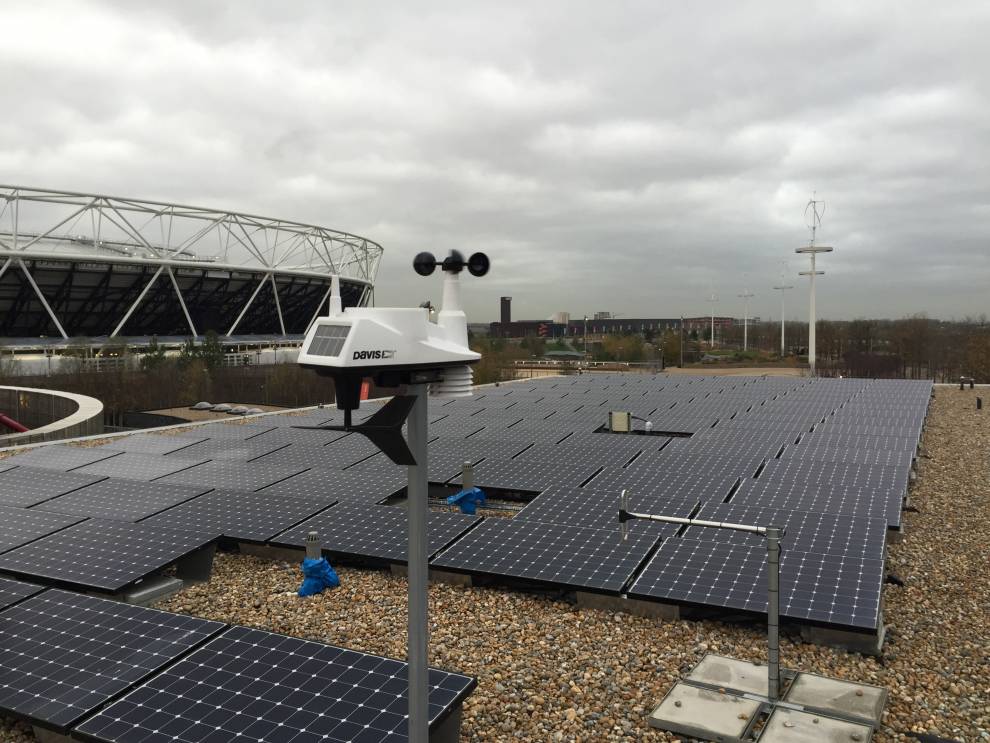
The course draws upon and contributes to the ongoing development of shared infrastructure at UCL East, including the connected environment, and collaboration is ongoing with People & Nature Lab, Robotic and Autonomous Systems and Global Disability Innovation Hub to develop shared and pathway modules together.
As a research led course, the degree also aims to provide a pathway for PhD level study within Connected Environments.
Initially run from Bloomsbury, the MSc moved to UCL East in 2022. Read more about the academic vision for UCL East here.
Why choose The Bartlett?
We are:
- The UK’s largest multidisciplinary faculty of the built environment, in one of the world’s top universities
- Based in central London, close to world-leading architectural, engineering and creative practices, many of whom are partners
- Host to students from over 40 nations, many of them among the most sought-after in the world for their drive, creativity, and skills
 Close
Close


